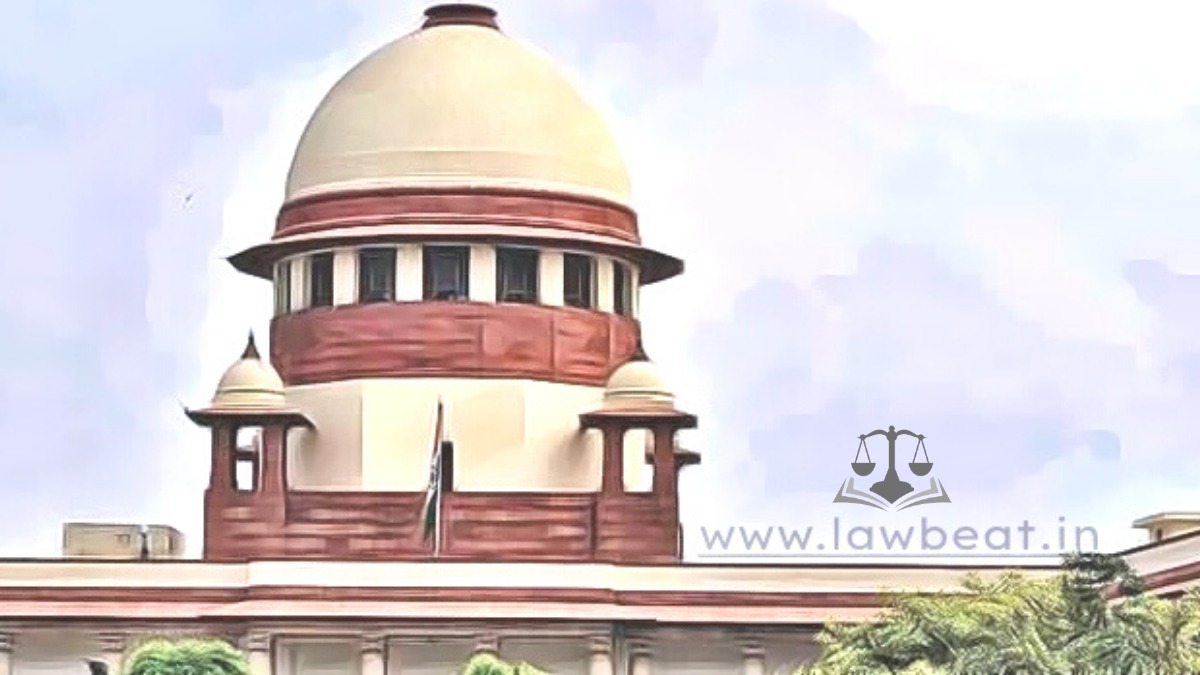Supreme Court refuses to quash Delhi Government's advertisement for issuance of Three Wheeler Permits to only E-rickshaws

Bajaj Auto Limited had approached Top Court stating that the exclusive permits declared for e-rickshaw's are in contravention of Article 14 of the Constitution as they exclude clean fuel CNG rickshaw manufacturers.
A Supreme Court bench of Justices L. Nageshwar Rao, BR Gavai and BV Nagarathna has refused to quash an advert by the Delhi Government which has permitted exclusive permits to e-autos.
The Court said that the amendment to Section 61 of Motor Vehicles Act and Rule 81 of Central Motor Vehicle Rules cannot be read to mean that addition of electronic autos on the road can be done over and above the existing limit of 1 lakh autos in Delhi.
The court was hearing an application filed by Bajaj Auto Limited to declare ultra vires an advertisement by the Government of NCT of Delhi issuing 4,261 new Three wheeler Scooter (TSRs) Rickshaw permits exclusively to electric autorickshaws (e-autos) by inviting online applications, thereby excluding CNG vehicles as being ultra vires of Article 14, being arbitrary to manufacturers of clean fuel CNG rickshaws.
It is to be noted that the court had on 16th December 1997, identified 2 seater ricks using 2 stroke engine as contributing to pollution in Delhi, therefore a direction was given that the number of TSRs could be frozen following the level that actually existed on that date.
In December 2002 permission was granted for registration for 5000 new rickshaws and several applications have been filed to remove the cap and increase the numbers. On 11th November 2011 the CAP for TSR permits was enhanced to 1 lakh. Liberty was given to the manufacturers to move the court if found necessary to increase the CAP.
Basavaraj Pati, Senior Advocate, appearing for Bajaj Auto submitted that CNG autos are BS VI compliant and the emission profiles have improved by 90% compared to BS 1 model when the court had capped the number of autos. The restriction of grant of e permits to E rickshaws and thereby including them within the 1 lakh sanctioned limit would be in restriction of the Bajaj auto’s fundamental right to sell their own CNG vehicles.
Ministry of Road Transport and Highways filed an affidavit confirming that amendment has been made to section 66 of MV and Rule 81 of CMV rules. Battery operated vehicles running on ethanol have been exempt from registration.
Rajeev Mehra, Senior Advocate, appearing for NCT of Delhi opposed the relief on the ground that CNG rickshaws cannot be compared to e autos and that there is a proposal to switch to e-vehicles completely. A comparison of e-vehicles with zero pollution with that of CNG with less emission would lead preference being given e autos .
"The decision of govt is supported by Faster Adoption and Manufacturing of Hybrid and Electric vehicle (FAME) 2 and Electric Vehicle policy 2020. It has been further said by NCT that 92,000 CNG autos are registered, and there is continuous replacement of these autos already," he said.
It was further contended that the cap of 1 lakh autos be removed.
The court on hearing the parties noted that the removal of cap will be considered at a later stage. The court held that:
- The decision of govt is in conformity with FAME 2 and EVP 2020. The residents of Delhi are affected with air pollution undoubtedly a part of which is attributed to vehicles. Even though CNG are BS VI compliant there is some carbon emission
- There are 92k CNG autos on the road. Replacement of old vehicles can be done by vehicles manufactured afresh
- The amendment to act and rules cannot be read to mean that addition of e autos on the road can be done over and above 1 lakh autos in Delhi.
Case title: MC Mehta Vs Union of India
